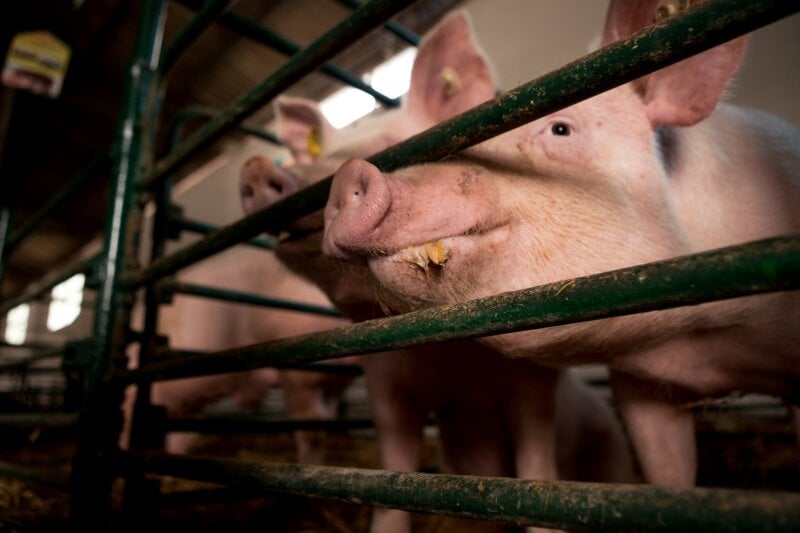Karnataka Prohibits Cruel Crates Used to Confine Mother Pigs Following PETA India Appeal
Following an appeal from PETA India, the Karnataka Animal Welfare Board (KAWB) has issued a circular directing all district deputy directors to prohibit the manufacture, sale, and use of cruel gestation and farrowing crates in pig farming.
Such crates are controversial features of intensive pig farming. Gestation crates (aka “sow stalls”) are metal cages essentially the size of a pig, with concrete or slatted floors, which leave the animals unable to turn around or even stand up without difficulty. They are used to confine pregnant pigs. Pigs are typically transferred to farrowing crates to give birth and are kept in them until their piglets are taken away. Farrowing crates are fundamentally the same as gestation crates, except they contain small side rooms for piglets.
The KAWB circular explained that both types of crate deprive pigs of sufficient space. Because mother pigs and piglets aren’t able to move, they’re forced to live amid their own faeces and urine, which leads to pressure sores.
In its appeal, PETA India noted that the National Research Centre on Pig deems gestation and farrowing crates illegal, as they violate Section 11(1)(e) of The Prevention of Cruelty to Animals Act, 1960. Both types of crate are so narrow that mother pigs are denied even basic movement. As such, they are deprived of everything that’s natural and important to them, such as opportunities to forage, build a nest for their young, socialise with other pigs, and regulate their body temperature (such as by wallowing in mud). The extreme stress and frustration caused by this severe confinement result in abnormal behaviour, such as constantly biting at the enclosure bars or continuously “chewing” the air.








